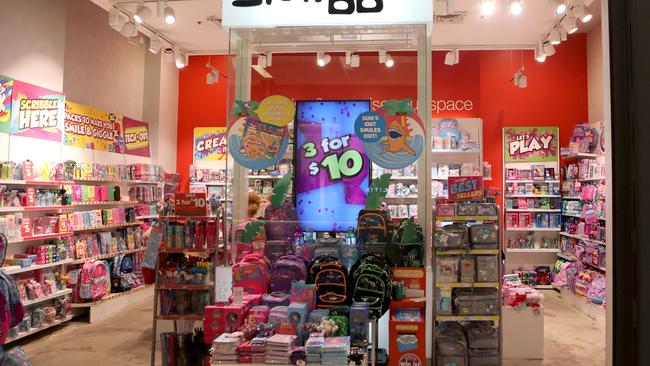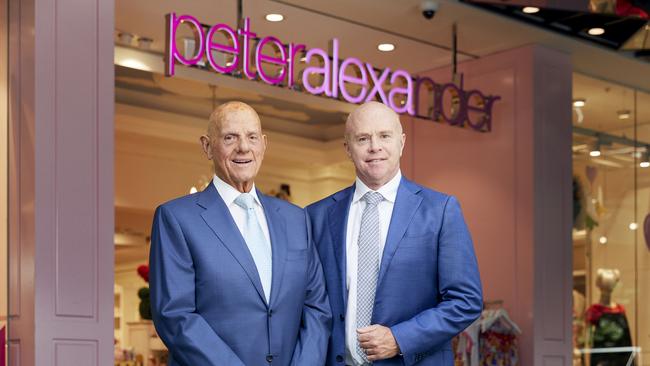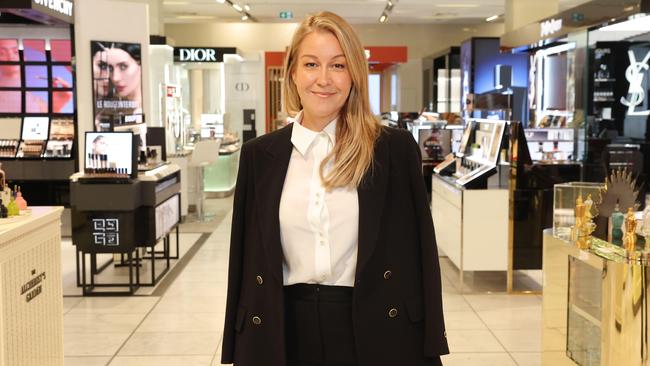Smiggle demerger shelved as Premier boss Lew warns government to back off RBA
Billionaire Solomon Lew, a former RBA board member, has warned the Albanese government to stop bagging the RBA over interest rates and do the heavy lifting itself by beating down inflation.

Retail billionaire Solomon Lew, a former Reserve Bank board member, has warned the government it can’t pressure the central bank to cut interest rates and must do the heavy lifting itself to beat down inflation, as his fashion empire shows the strains of a floundering economy and weak consumer spending.
A strident Mr Lew called on Prime Minister Anthony Albanese and Treasurer Jim Chalmers to stop “bagging” the RBA as the veteran retailer described the current economic malaise as the worst trading conditions he had seen in 60 years with shoppers in plenty of pain at the checkout.
Unveiling his Premier Investments’ annual results on Wednesday, which showed falling sales and profits for most of its retail brands as well as announcing a decision to shelve its planned demerger of kids stationery chain Smiggle, the billionaire lashed the Albanese government for attempting to pressure the RBA on rates and failing to properly manage the economy.
“First of all let me say that the government has a responsibility to manage the economy better, so nothing will happen until the government starts making some positive decisions that can take the economy to a better footing,” said Mr Lew, who was a member of the RBA board from 1992 to 1997.
“They (the RBA) won’t do anything until they see an improvement in the economy. They can’t be pressurised. The government can say whatever they want, the Prime Minister, Jim Chalmers, they can say whatever they want about the RBA and bag them, but they have a responsibility, and they operate autonomously.”

Earlier this month, the Treasurer chided the RBA for “smashing the economy” with its aggressive run of rate hikes in comments that were seen by many as an attempt to shift the blame to RBA governor Michele Bullock rather than taking responsibility for his government reining in spending to cool the economy. A spluttering economy – whether that’s the fault of the government or RBA – is now eating into Premier Investments’ profitability with sales and earnings missing some analyst expectations, especially former star performer Smiggle which saw a 7.4 per cent dive in sales in 2024.
Premier Investments shares dropped 9.1 per cent to close at $30.61 on Wednesday. Although this fall was cushioned by a final dividend of 70c, up 10c a share, payable to shareholders on January 8.
The results were also accompanied by a number of challenges and opportunities for the group including negotiations to sell its retail apparel brands to Myer, shelving the Smiggle demerger but pressing ahead with a demerger of its high-growth Peter Alexander brand next year.
Premier Investments also announced that Peter Alexander would make its expected push into Britain, confirming the first three Peter Alexander UK stores and website would be opened by November.
Mr Lew said he didn’t believe interest rates would be cut this year. “And if the economy is not going well and people are not coping with the cost of living and all the other trials and tribulations, then it’s not going to happen for a while. It certainly won’t be this year. ”
Mr Lew said the federal government was spending too much money, digging a bigger debt hole and not giving enough confidence to consumers at a time they faced huge stresses on their household budgets.
“I have never seen in all my years in business the actual stress there is on the consumer … the cost of living, the cost of gas, the cost of utilities, the cost of schooling is just so way up that I, personally, believe the government has mismanaged the economy.”
Premier Investments posted a net profit of $257.9m for the 12 months to July 27, down 4.9 per cent from last year, as sales fell 2.7 per cent to $1.62bn.
Mr Lew looks to have once again reworked his strategy for the retail assets given the current trading conditions.
“The board continues to see merit in the potential demerger of Peter Alexander and Smiggle, however, due to the current prioritisation of the proposal received from Myer, the board is no longer working towards the demerger of Smiggle by the end of January 2025,” Premier Investments said.
“The ultimate timing of any demerger of Peter Alexander and/or Smiggle will depend on the outcome of the discussions with Myer.”
Smiggle suffered a 7.4 per cent decline in sales for fiscal 2024, and it’s long-serving chief executive John Cheston was sacked earlier this month for unspecified “serious misconduct”.

On Monday, The Australian also reported that three high-ranking Smiggle executives had also put in their resignations, adding to the management turbulence within the stationery chain just as bankers and lawyers were looking to plump up the business ahead of a planned demerger.
In a press conference Mr Lew looked to lay the blame for the poor Smiggle results in the lap of former CEO Mr Cheston, saying that Smiggle management had “lacked focus” during the year. Pressed to explain what Mr Cheston’s “serious misconduct” was to get him sacked he declined to comment.
Mr Cheston has accepted a job as chief executive of jewellery store Lovisa, chaired and controlled by another retail billionaire Brett Blundy.
Mr Lew said Mr Blundy had not called him yet to talk about Mr Cheston’s sacking from Premier Investments.
In a trading update accompanying the results, the retailer stated that Australian sales for its fashion and apparel brands in the first seven weeks of its 2025 first half were up 0.2 per cent. However overall global sales – which is heavily skewed by the Smiggle chain that operates overseas as well – for the seven weeks were down 3.5 per cent,
“Fiscal 2024 has been another challenging year for discretionary retail,” said Mr Lew.
Interim CEO John Bryce said cost of living pressures were being felt across the business.
“As our customers in all markets continue to be impacted by increased cost-of-living pressures, Premier Retail’s strategy remains anchored on delivering value for customers in our products and shopping experience.
“We are particularly pleased with the result of Peter Alexander, surpassing half a billion dollars in annual sales in 2024, cementing the brand as a leading lifestyle and gifting brand in Australia and New Zealand.”
The company said its Premier Retail arm reported earnings of $325.9m for 2024, down from $356.5m in 2023.
Premier Retail delivered global sales for the 2024 financial year of around $1.60bn, a 2.9 per cent reduction on the 2023 record financial year.
The 2024 financial year sales result was the second-highest in the group’s history, it said, after cycling record sales in the 2023 financial year. Global sales are up 26 per cent on pre-pandemic sales for the 2019 financial year.
Peter Alexander reported record annual sales of $508.6m, up 6.2 per cent. This is the first year that Peter Alexander has surpassed half a billion dollars in sales. The record result was driven across all its product categories: women’s, men’s, children, plus-size and gifting, the company said.
Smiggle’s sales fell 7.4 per cent to $296m, with the company blaming a challenging global discretionary retail environment and the traditional Smiggle shopper particularly exposed to increased cost-of-living pressures. However, despite these difficult conditions, Smiggle delivered its 2024 sales result trading as a more efficient business, with 43 fewer stores than in 2019.
The group’s five apparel brands – Just Jeans, Jay Jays, Portmans, Dotti and Jacqui E – delivered a combined sales result for the period of $790.7m, down 6.4 per cent.
The division, which has 719 stores operating in Australia and New Zealand, will also now have a new loyalty program which Premier Investments will launch in October.
It is these apparel brands that Premier Investments is currently considering selling to Myer in return for shares in the department store owner.
Mr Lew said “a lot of work” was taking place and that at this stage he hadn’t seen any “red flags” that could trip up the sale of the brands to Myer.
He said he couldn’t give any timing on a possible deal with Myer.
“Obviously the (Premier and Myer) boards have been kept briefed on what is taking place and everybody is looking at the opportunity,” he said.
“So you’ve s got company like Premier that makes approximately 20c on the dollar, and you’ve got a company like Myer that makes 1.5c on the dollar. So obviously there should be – with the right structure – there should be some potentially very big upside.”
Premier Investments ended the year with cash on hand of $409.5m, an investment in kitchen appliances maker Breville worth $981.5m, plus an investment in Myer worth $215.3m.




To join the conversation, please log in. Don't have an account? Register
Join the conversation, you are commenting as Logout